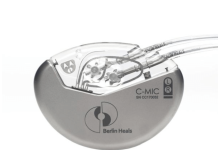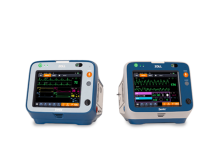Health Canada has granted approval of the Eye-Tracking Neurological Assessment for Multiple Sclerosis (ETNA™-MS). Developed by Innodem Neurosciences (Innodem), ETNA™-MS is a software as a medical device (SaMD, class II) intended to administer a non-invasive test and provide an Expanded Disability Status Scale (EDSS) score in the range between 1.0 and 4.5 for use in tracking disease progression in people living with MS.
Related: RedDrop Dx wins FDA approval for RedDrop One blood collection device
ETNA™-MS turns an iPad Pro into a medical device capable of capturing and analyzing several hundreds of eye movement parameters. This patented, mobile, software technology could offer a modernized approach to care and a way to make informed, real-time treatment decisions for people living with MS. The approval of ETNA™-MS is based on data collected through a validation study performed by Innodem.
An ongoing longitudinal observational trial supported by Novartis Pharmaceuticals Canada Inc. (Novartis Canada) aims to investigate the potential utility of biomarkers in monitoring MS disease status. The work between Novartis Canada and Innodem seeks to accelerate the path towards a reliable, non-invasive, sensitive, and accessible marker of disease progression in MS.
“This approval brings us one step further in closing the gap in care for people living with MS and marks a shift to a more proactive approach to disease management,” said Erin Keith, Vice President, Neuroscience at Novartis Canada. “Through our commitment to reimagine medicine and cross-sector collaboration, we are taking innovation in MS beyond therapeutics, paving a path to much needed solutions that Canadians deserve. I am excited to see what the future holds.”
Canada has one of the highest rates of MS in the world, with more than 90,000 Canadians—or one in 400 people across Canada—living with it. MS is a complex and unpredictable disease, in which the severity and duration of symptoms can vary from person to person and evolve as the disease progresse. As such, people living with MS require tailored, personalized, and adaptive treatment strategies based on individual needs and the rate of disease evolution.
“We’ve learned a lot about MS and its progressive nature over the years, but we still hadn’t established a reliable and accessible means through which to monitor subtle changes in disease status in near real-time,” said Dr. Giacomini, MS Clinic Director at the Montreal Neurological Institute and Chief Medical Officer at Innodem Neurosciences. “This approval brings us one step closer to giving clinicians a tool that could help inform better clinical decision-making and offer more positive outcomes for people living with MS.”
The necessity of using biomarkers in studying major diseases such as cancer and heart disease has been widely discussed,4 and today, there is an increased interest to develop disease-specific biomarkers that could estimate disease severity and cognitive status in people living with MS. In recent years, there has been a remarkable increase in the number of available treatments for MS,5 but how disease progression is detected and monitored has remained vastly unchanged.
“When someone is diagnosed with MS, it changes their life,” said Diego Mena Martínez, Executive Director, Quebec Division of MS Canada. “It can be a challenging condition to manage given its unpredictable nature, so I welcome the progress happening in this space as an important step towards a more proactive care approach which has the potential of positively impacting people living with this disease.”
As a leader in life sciences, Novartis Canada is pushing the boundaries of innovation beyond the traditional confines of therapeutics, focusing on the expansion of research to support the identification of novel biomarkers in MS. Having signed a multimillion, multi-year commercial framework agreement with Innodem to continue advancing research into the application of ETNA™-MS, with additional milestones anticipated in the future, Novartis Canada is committed to helping advance a more proactive care approach in MS.




